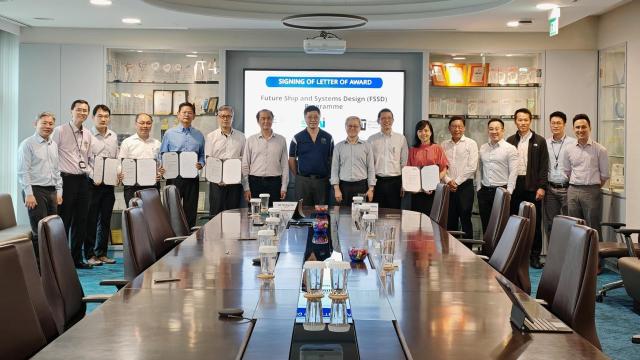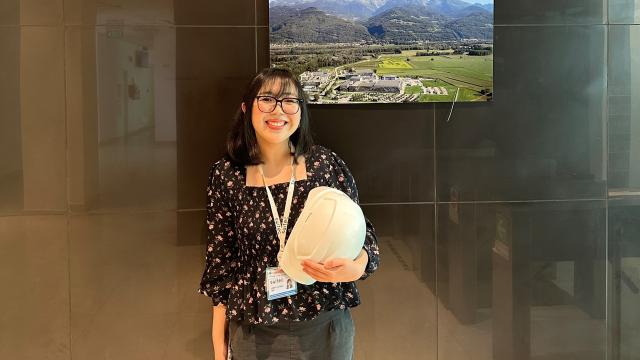Black sesame, coffee, passionfruit, and mushroom soup are familiar foods on the local menu. Instead of consuming them directly, these familiar favourites have had their flavour and nutrition profiles harnessed to be consumed as a plant-based protein supplement for cancer patients.
It started over a Christmas dinner with an oncologist friend, on how his cancer patients needed to ensure an adequate amount of protein intake during treatment and recovery. Available products on the market are usually limited to flavours like chocolate, vanilla, strawberry – not exactly crowd favourites among the local population.
This got Asst Prof Verena Tan, Programme Leader of SIT’s Dietetics and Nutrition degree programme, thinking and tinkering for a plant-based protein supplement with a local twist. What if one could formulate nutritious and tasty plant-based protein supplement?

Asst Prof Verena Tan, Programme Leader of SIT’s Dietetics and Nutrition degree programme.
Balance Between Nutrition and Taste
There were a couple of considerations. First and foremost was to ensure an optimum protein profile when developing a plant-protein alternative. From currently available evidence, plant proteins, with the exception of soy, are not considered a high-quality protein source as they lack certain essential amino acids required for maintaining or increasing muscle mass.
Inadequate protein intake is also a key contributing factor to the loss of lean muscle. For cancer patients, the loss of lean muscle mass may also be compounded as a result of cancer-related factors such as loss of appetite, psychosocial stress and emotional stress.
This loss can lead to poorer tolerance to their cancer treatment. Guidelines for cancer patients typically recommend a protein intake of up to 1.5g per kg of body weight per day, to support protein balance in the body. “Studies have shown that an elevated protein intake promotes the building of lean muscle tissue in cancer patients,” said Asst Prof Tan.

Adequate protein intake promotes the building of lean muscle tissue, allowing cancer patients to better tolerate intensive cancer treatments.
Currently, the nutritional supplements for cancer patients found on the market are usually sweet, include whey protein (a component of cow’s milk) and come in limited flavours. Taste fatigue builds and becomes another barrier to nutrition supplementation for this group of consumers.
Combining the Best of Many Plants
Enter Asst Prof Tan’s plant-based protein brainwave. She has successfully developed prototypes made up of a combination of different plant-proteins in a ratio that provides an optimal essential amino acid profile for muscle health. There is 20g of protein in each serving, which is shown to be the optimal dose to allow for muscle protein synthesis.

Asst Prof Tan concocting plant-based protein instant beverages for the Asian palate.
Furthermore, these instant beverages have been flavoured for the Asian palate, such as black sesame, coffee, passionfruit, and mushroom soup.
The verdict? These flavour profiles have been a hit. Preliminary findings have shown positive reception to the prototypes developed. Learn more about the protein supplements in the video.
![[FA] SIT One SITizen Alumni Initiative_Web banner_1244px x 688px.jpg](/sites/default/files/2024-12/%5BFA%5D%20%20SIT%20One%20SITizen%20Alumni%20Initiative_Web%20banner_1244px%20x%20688px.jpg)


